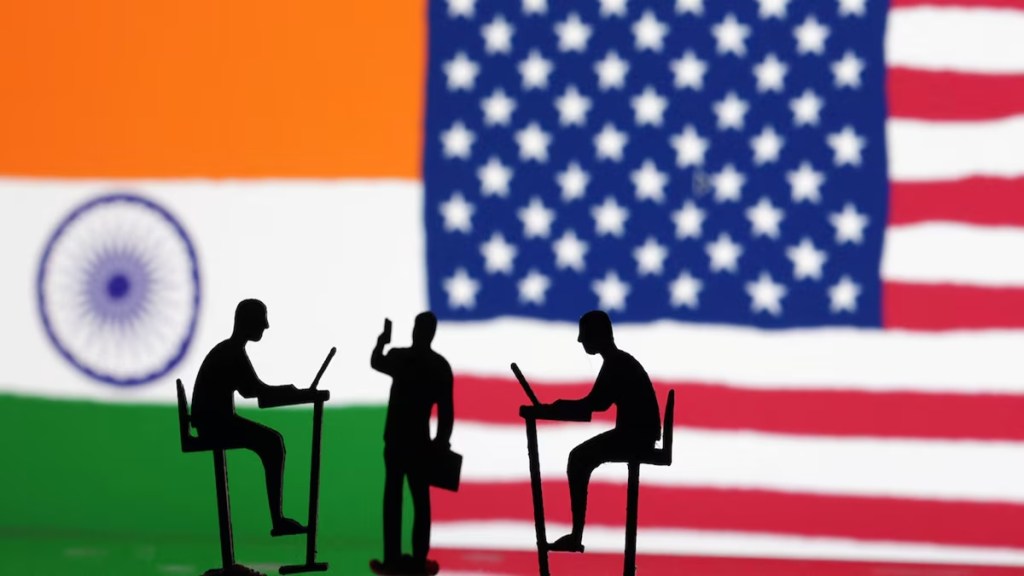by Vishwaprasad Alva, Founder and managing director, Skanray Technologies
The media, trade bodies, industry, and economists are busy discussing the impact of tariffs, reciprocal duties, and reversal of globalisation. The Ponzi scheme of uncontrolled globalisation has come to its dead end. Like any pyramid scheme — real estate, stock market speculations, or Bitcoin — the bubble must burst someday.
Europe and the US taught and forced the world to adopt a free market economy. Russia’s Mikhail Gorbachev and his glasnost/perestroika took the bait in the 80s and moved away from communism, and the country is still struggling to come to terms with it. It lost control over its economy, people, and territory, and didn’t get much out of the western open economy. China, on the other hand, quickly jumped into a controlled globalisation in its signature style. It leveraged the US and Europe to the limit and is now paying back in the same coin.
India, with its much-prized democracy, an electoral system with a huge ignorant, freebie-driven voter base, lost out on decision-making, economic and social reforms, infrastructure, and industrialisation. Here we are now endlessly debating trade tariffs, and fence-sitting in our true non-aligned deadlock.
Will this tariff war last long? No. The world is interdependent and interlocked like never before. If the US levies penalty on Chinese goods, China will ration rare metals and minerals vital to US existence. It can also create consumer goods scarcity, high inflation, and social unrest in a US obsessed with wasteful buying. Semiconductors, fossil fuels, rare metals, super computers, satellites, airplanes, critical medical equipment, in-land security and defence technology, food — all of these are bargaining points where no one can win. This war won’t last beyond a year. If autocratic countries hold on tight irrespective of social turmoil, it may last five years or until an election.
Is the US-European Union (EU) reciprocal tariff a big blow to India? I don’t think so. Where India has built its ecosystem, the competitive advantage it has is significant and can’t be impacted quickly. What if India yields to reducing customs duties to find a trade balance with the EU and US? Except food security, agrotech, defence, pharma, and automobile sectors, the rest are either too small, strong enough or resilient to bounce back with alternatives.
What is the real fear then? It is the routing and dumping of cheap foreign goods through the US/EU by local traders and corporates. While the EU, the US, or Japan isn’t a threat to us, they can bring cheap government subsidised goods and dump them in India. Many of their local industries have been systematically killed by cheap imports and now they will inflict this wound on us through their reciprocal tariff. The so-called “Made in India”, “Made in the US” or “Made in the EU” can be assembled or traded goods with 35% local content.
This is a real threat, difficult to detect, regulate, and overcome. To safeguard us against this, we had asked the Indian government to insist on the country of origin for imported goods with bill of materials filing and declaration for every item in which over 50% of the raw material and 80% of the manufacturing labour is from the US or the EU. There are countries doing so already. Our problem is that of competence and lack of domain expertise at the policymaking levels. Many ministers are 24×7 into electoral politics due to unending elections.
Bureaucrats get top policy defining roles at the fag end of their careers. They can’t take risks and lose everything they earned in their lifetime. Bureaucrats are changed frequently, have no grip on the sector, and lack the patience or humility to listen to or identify subject matter experts. Like their politician bosses, the officials are at the mercy of industry bodies, associations, and individuals seeking favour in exchange for praise and media endorsements.
Most people we know in the industry want our PM to get two more terms to fulfil his noble dream for the nation, but don’t want to speak the bitter truth about policy gaps. Today most of the media is polarised on every matter leaving a miniscule few who are neutral, do deep research and function as constructive critics. Our PM must cultivate people who are unconditionally his friends, nationalistic, selfless, and have the freedom and courage to speak the truth.
China is our natural partner and must be dealt with uniquely to contain its expansionist ambitions. Perhaps one day, India, China, Singapore, Thailand, the Philippines, Vietnam, Cambodia, Sri Lanka, and even Pakistan and Bangladesh can come together to create an Asian union with open borders and a common digital currency. It will be more than 50% of the world population and 80% of the new global economy. But there should be stability and peace first. Cross-border terror must be dealt with firmly. Religion-, race-, and cult-based nationalism should go.
There is also the old Swadeshi economic alternative with minimalistic living and ecocentric vegan lifestyle to choose from. Nothing can be ruled out. Sacrificing this generation for the good of the next is not a great idea. Each is equally important. Whatever ensures happiness and equality is the best option.
Disclaimer: Views expressed are personal and do not reflect the official position or policy of http://financialexpress.com/ FinancialExpress.com reproducing this content without permission is prohibited

